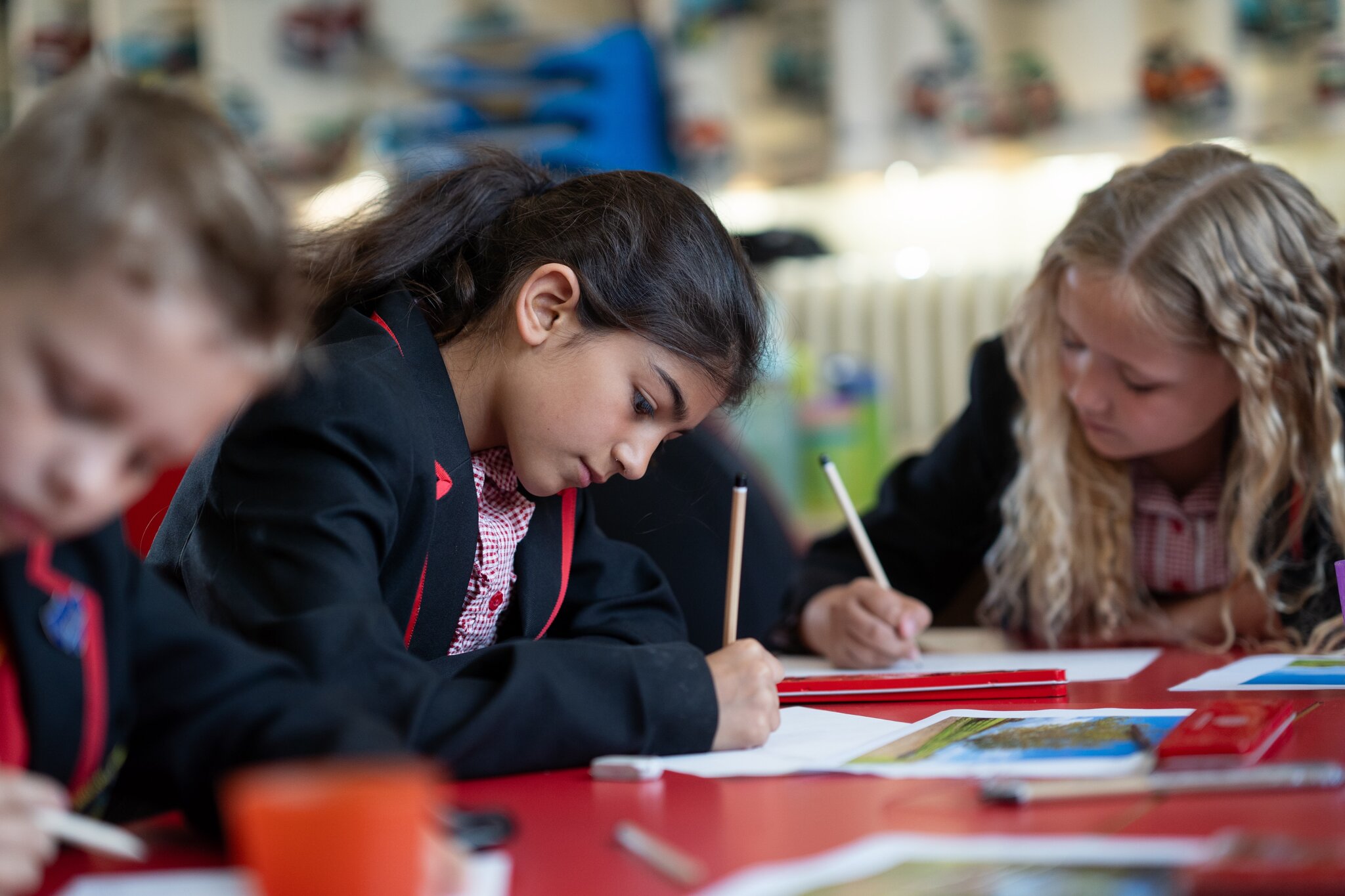
Our intent: We believe that being able to think creatively and critically is vital to all subjects and life-long learning, therefore we strive to give our children these skills and help them to develop into knowledgeable creative young people. Art is an area where we instill independence and immerse our children in art from a range of cultures and traditions.
Art begins in the Foundation Stage, where children learn:
- how to create their own work
- develop their imagination.
It is important that children have an in-depth and secure knowledge of particular skills in order to achieve the best results. In KS1 and KS2 we teach a range of techniques throughout their primary school experience. Children will learn:
- how to sketch from still life
- discover how to use light and shade to create depth
- create textures using pencils, pastels and charcoal.
We develop the skill of drawing by;
- providing ample opportunities to put our skills to practise
- drawing a variety of objects such as buildings, people and nature in a range of different places.
- teaching basic painting skills, starting with exploring different tools and methods of painting, moving onto more skilled and precise techniques using watercolours.
- teaching how to create sculptures, looking at form and shape by using clay, balsa wood and natural materials. We also extend the boundaries of art by teaching crafts such as printing and collage.
In order to create a secure and strong foundation upon which to build our skills, we teach the children about relevant historical and current artists. Over the course of their time at school we will introduce the children to artists such as William Morris, Picasso, Escher, Andy Goldsworthy and Bansky. We believe that it is vital for children to see what others have achieved, provide opportunities for them to discover these artists first hand, and analyse their work. They can then use this knowledge to inspire their own artwor; underpinned by our Believe and Achieve outlook.
We give the children time to explore ideas, and experiment with materials and designs. This time is important to developing a critical mind, with the children evaluating their own and their friend’s creations, taking ideas and criticisms into account to improve their work. We then encourage the children to take all of their knowledge and skills into account to carefully design their own final piece of work. With art lessons being predominately child led, a sense of ownership and love is created in the children, leading them to create a piece of work that they are proud of. The children experience a sense of achievement from creating something that is completely theirs.
We believe that being able to look at artwork, both our own and others; in a critical way, is a key skill to take up to secondary school. The children have art lessons where they look at the creations of the class and criticise and complement the creations of others. We develop the ability of comparing our work and encourage children to analyse what they achieved and think about how they could change or improve their own work if they were to do it again.
English is entwined into all art lessons, with the children reading about artists and writing up their own evaluations. We develop their speaking and listening skills, and extend their language and vocabulary. These are skills that they can transfer into a range of other subjects, making the children more rounded and intellectual people.
Mathematics is also included in art lessons when looking at pattern and shape and space.
Most importantly we ensure that art lessons are fun. They are a great platform for all children to reach their full potential, exploring a range of possibilities and thinking outside of the box to create something fantastic.
Art and DT Rolling Programme of Study
Because of our Art curriculum, The Howard children are:
.PNG)

